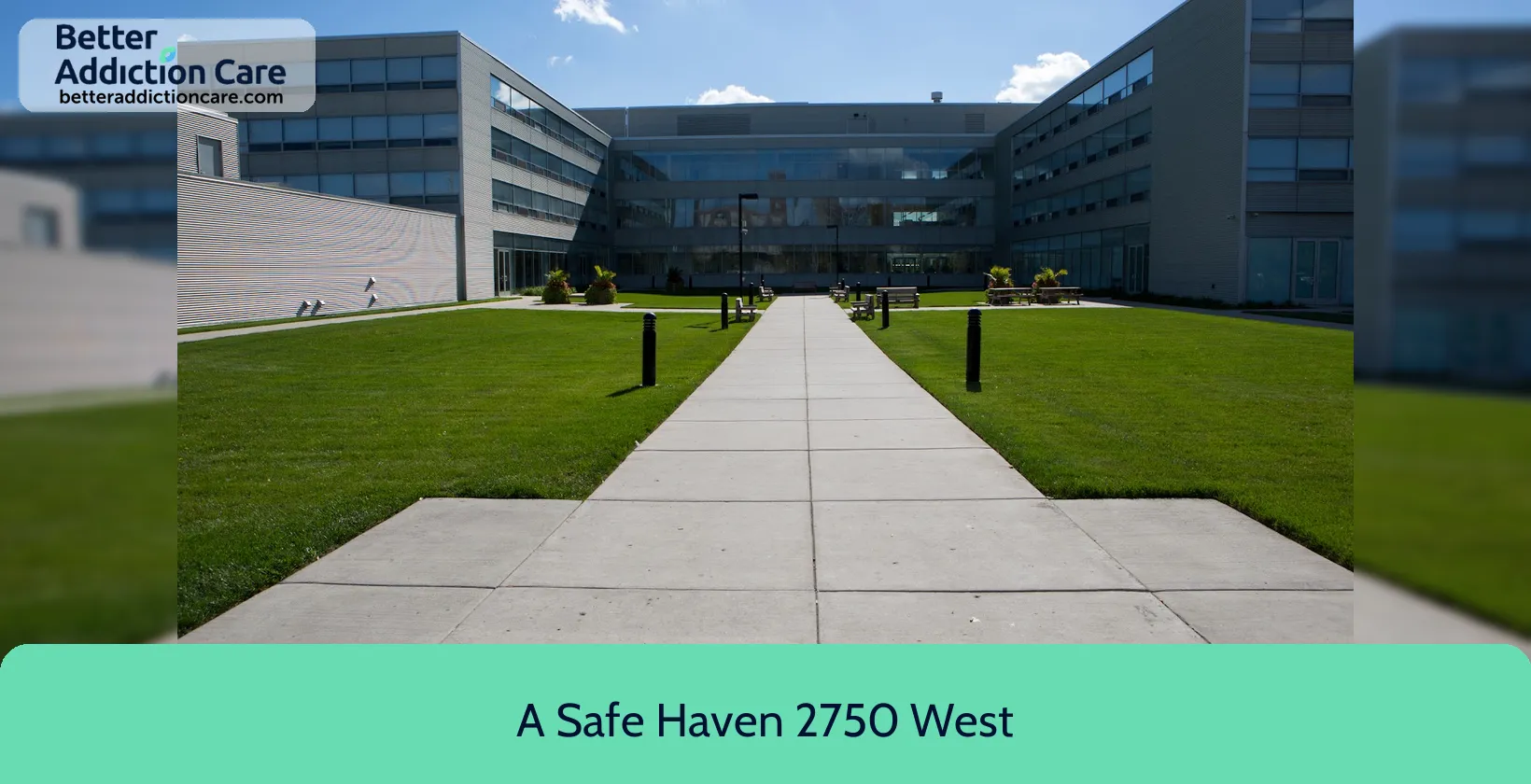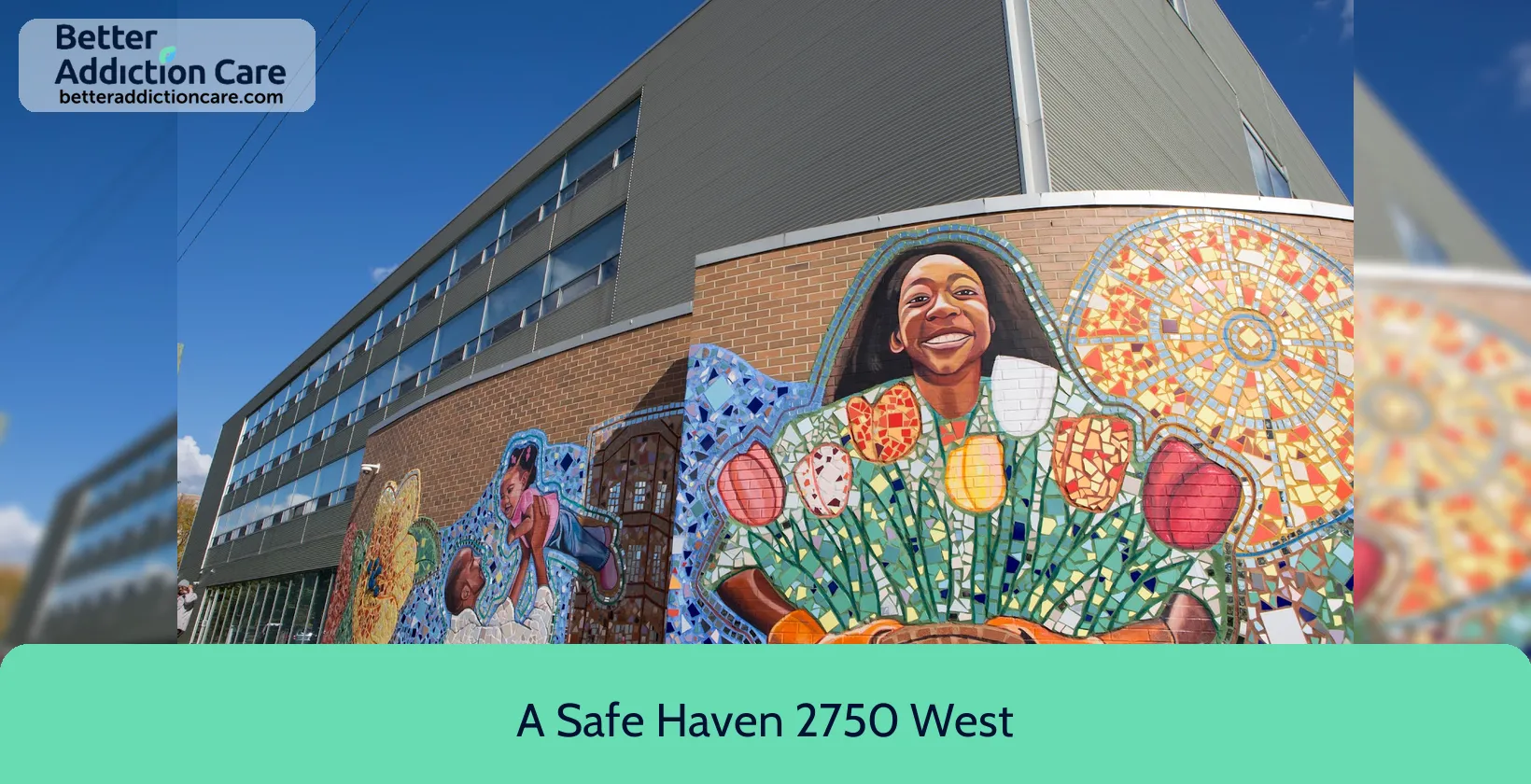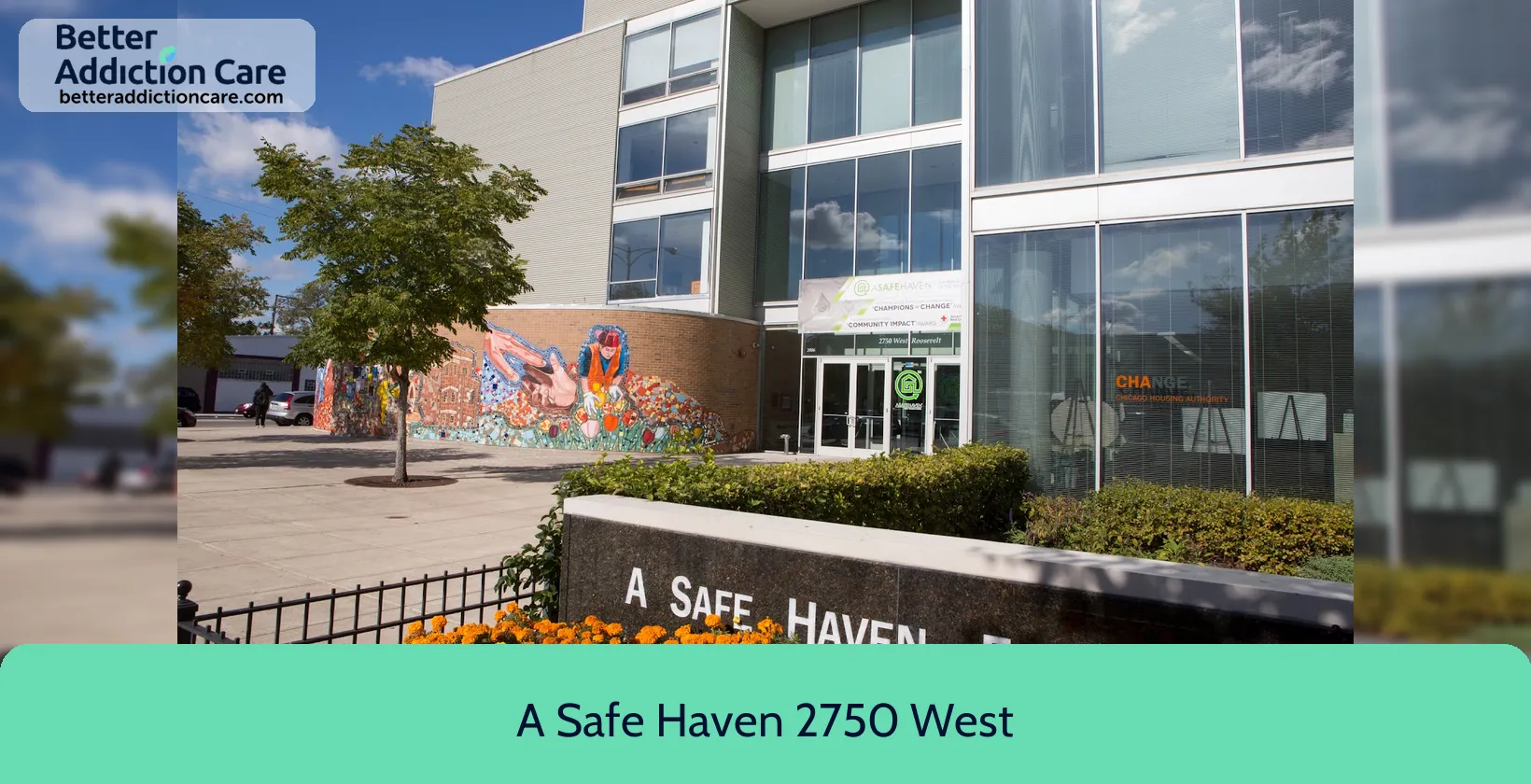Overview
A Safe Haven in Chicago, Illinois, helps people in trouble with all kinds of treatment and support. People who are dealing with domestic violence, mental health problems, drug abuse, or being unemployed or underemployed can get help at the center. The program doesn't discriminate based on gender or religion and helps people of all ages and backgrounds.
A Safe Haven has many programs, such as transitional housing, case management, mental health care, education, and job training. Cognitive behavioral therapy, anger management, activity therapy, and assertive community treatment are some of the treatment methods that the center uses to meet the needs of its clients.
A Safe Haven focuses on helping people with complicated social and economic problems. They use a person-centered method to help them regain confidence and a sense of purpose in their lives.
A Safe Haven 2750 West Roosevelt Road at a Glance
Payment Options
- Medicaid
- Medicare
- Private health insurance
- Federal, or any government funding for substance use treatment programs
- Payment assistance (check with facility for details)
Assessments
- Screening for tobacco use
- Comprehensive mental health assessment
- Comprehensive substance use assessment
- Outreach to persons in the community
- Screening for mental disorders
Age Groups
- Young adults
- Adults
- Seniors
Ancillary Services
- Case management service
- Suicide prevention services
- Domestic violence services, including family or partner
- Mental health services
- Social skills development
Highlights About A Safe Haven 2750 West Roosevelt Road
7.14/10
With an overall rating of 7.14/10, this facility has following balanced range of services. Alcohol Rehabilitation: 8.00/10, Drug Rehab and Detox: 6.62/10, Insurance and Payments: 6.00/10, Treatment Options: 7.94/10.-
Alcohol Rehabilitation 8.00
-
Treatment Options 7.94
-
Drug Rehab and Detox 6.62
-
Insurance and Payments 6.00
Accreditations
State mental health department:
State mental health department accreditation refers to the process of evaluating and certifying the quality and standards of a state's mental health department, ensuring that it provides high-quality services and meets specific criteria for mental health care. The accreditation process is performed by a third-party organization and helps to improve the overall care and treatment of individuals with mental health conditions.
Treatment At A Safe Haven 2750 West Roosevelt Road
Treatment Conditions
- Mental health treatment
- Alcoholism
- Substance use treatment
- Co-occurring Disorders
Care Levels
- Outpatient
- Intensive outpatient treatment
- Regular outpatient treatment
- Aftercare
- Halfway house
Treatment Modalities
- Cognitive behavioral therapy
- Telemedicine/telehealth therapy
- Substance use disorder counseling
- Trauma-related counseling
- Smoking/vaping/tobacco cessation counseling
Ancillary Services
Languages
- English
Additional Services
- Pharmacotherapies administered during treatment
- Mentoring/peer support
- Breathalyzer or blood alcohol testing
Special Programs
- Clients with co-occurring mental and substance use disorders
- Veterans
- Members of military families
- Criminal justice (other than DUI/DWI)/Forensic clients
- Pregnant/postpartum women
Get Help Now
Common Questions About A Safe Haven 2750 West Roosevelt Road
Contact Information
Other Facilities in Chicago

7.16

6.74

6.65

6.65

6.80

6.62

6.77

6.68
DISCLAIMER: The facility name, logo and brand are the property and registered trademarks of Garfield Park Behavioral Hospital, and are being used for identification and informational purposes only. Use of these names, logos and brands shall not imply endorsement. BetterAddictionCare.com is not affiliated with or sponsored by Garfield Park Behavioral Hospital.



